What are NFT Games?
Non-Fungible Token (NFTs) are digital, cryptographic token that stands in place of a singular object on the blockchain. As it is interchangeable, each token is distinct and cannot ever be exchanged for another token that is exactly the same.
You may exchange one bitcoin (BTC) for another bitcoin that is exactly equivalent in every manner. This is not conceivable with an NFT, not even with NFT artwork distributed in a series with different iterations. In this situation, each NFT will have unique information, exactly like you would in a series of numbered prints.
In NFT games, the NFT’s goal is to maintain the value of items connected to a gaming collection. NFT can be a downloadable gaming item, a valuable work of cryptographic art, or even a physical thing like real estate, and NFT games have been developed to offer play-to-earn models. Unlike just keeping cryptocurrency items in your wallet, NFT games provide more options to create game’s mechanics, regulations, and player interactions.
Traditional video games and NFT games are both available and have some distinctive points. In classic video games, players can earn things and cash by passing levels or winning battles but they do not have access to these rewards outside of the game. Meanwhile, NFT games differ from conventional video games in that players may move their winnings across games or trade them with other players for cryptocurrencies.
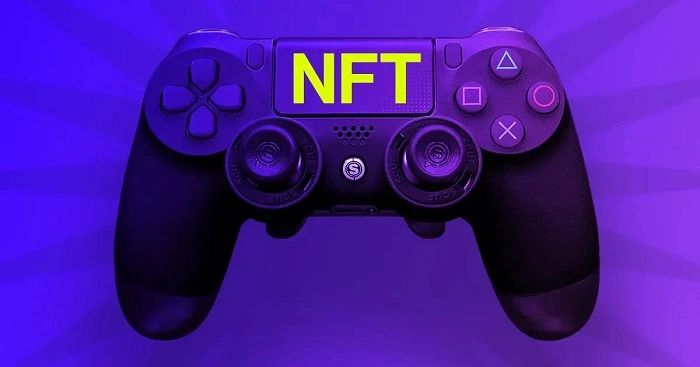
Other related NFT game definitions that you need to know
In-game NFTs
You may earn money while playing NFT games through in-game NFTs. The value of an item will vary depending on its function, rarity, or cosmetic appeal in the game.
NFT and cryptocurrency token integration may be seen in the majority of blockchain games, and players are granted ownership of their in-game possessions through a play-to-earn system as opposed to a pay-to-consume experience.
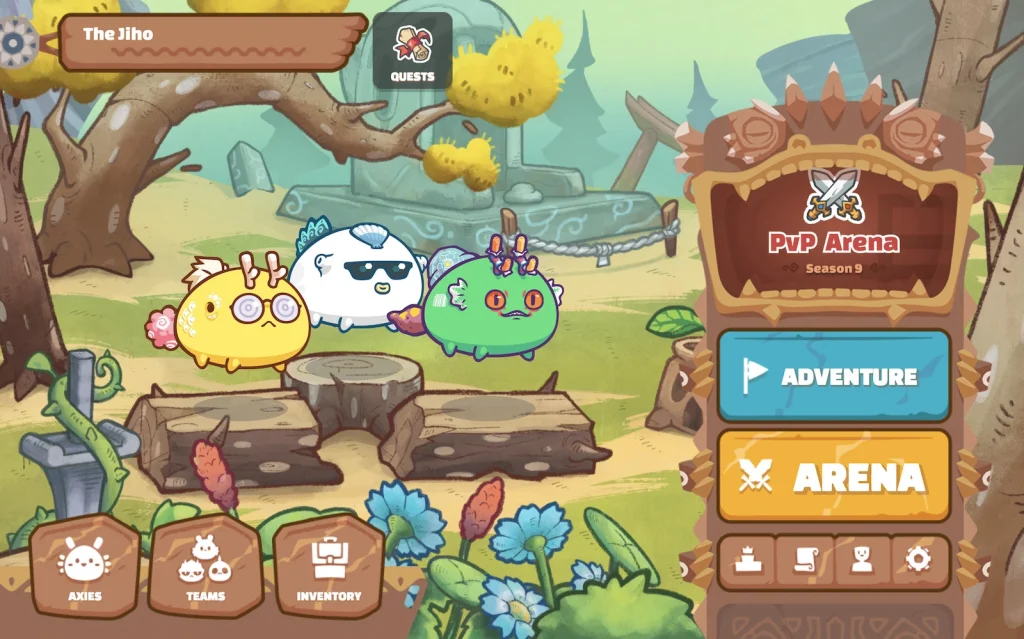
Play-to-earn NFTs
With the play-to-earn NFT games, players have the opportunity to earn money simply by playing. The more time they spend in the game, the more tokens they receive, and in some cases, NFTs as rewards. This play-to-earn model works because developers build smart contracts to integrate NFTs into the gaming environment and define the rules for how they are generated, used, and exchanged within the game.
Since tokens can be acquired continuously through regular gameplay while NFT drops are usually more chance-based, tokens tend to be the more consistent source of rewards. This consistency is one reason play-to-earn has attracted users in low-income regions, where game earnings can act as a supplement to fixed income or, in some cases, a temporary replacement.
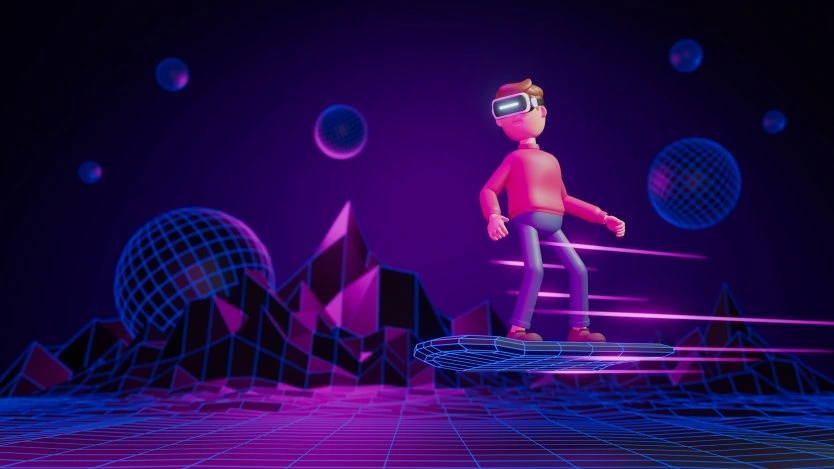
How does NFT game work?
To put it simply, an NFT game lets you play, own what you earn, and trade it for real value.
You start by playing the game just like any other: fighting enemies, completing missions, or building things in the game world. As you progress, the in-game items such as characters, weapons, or land are created as NFTs on the blockchain.
This matters because those items are not just locked inside the game, they actually belong to you. You can earn NFTs through gameplay or buy them if you want to move faster.
Since these assets live on the blockchain, you are free to trade or sell them on marketplaces, which is how time spent playing can turn into real economic value.
Popular & The most anticipated upcoming NFT games
The popular existing NFT games
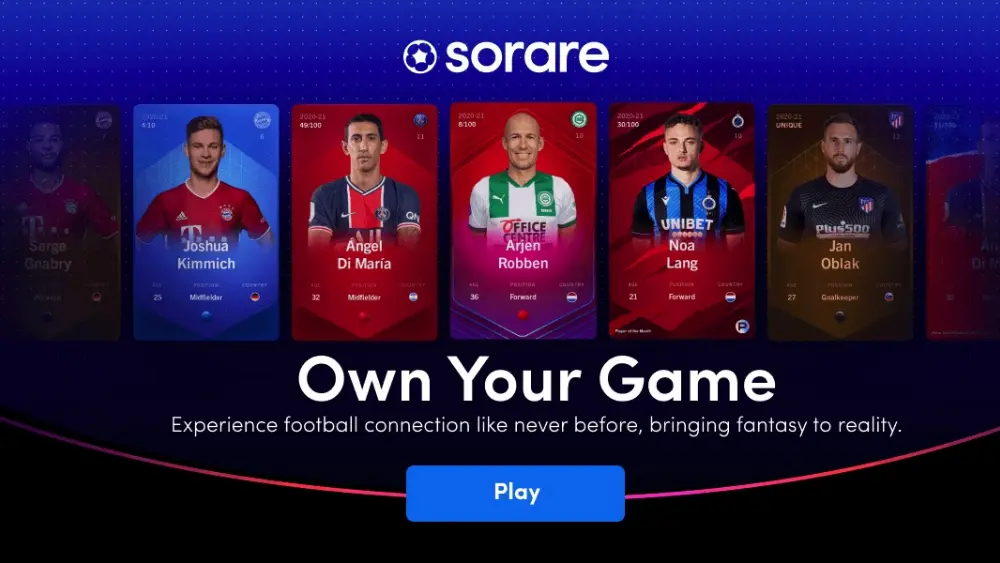
- Axie Infinity: Pokemon-style collectable animals and fights are used in Axie Infinity. Users of Axie Infinity, which runs on the Ethereum blockchain, have the opportunity to earn money by exchanging Small Love Potions (SLP), Axies, and Axie Infinity Shards (AXS).
- Gods Unchained: It is an Ethereum-based tradeable NFT card game. In order to compete with other players, gamers create decks with various strengths and abilities. You discover in-game things to use or sell as you win. Gaining Flux, which enables you to create potent NFT cards, is possible after winning ranked games. Then you can either sell them for a profit or buy fresh cards to continue the process.
- Sorare: This is a fantasy football game that features real-life soccer players that are collectible and tradeable. The users may either buy tokenized cards or use free cards for novice players to assemble a five-player soccer squad. For each game you win, make the score, or finish other activities, you can gain points to level up.
- Binance NFT Collections: A NFT game experience is offered by Binance NFT Marketplace through collaborations with NFT Mystery Boxes and Collections. From digital artists to NFT games, these alliances span the industry. A random NFT of a unique rarity from the Collection is included in each buyable Mystery Box. It is possible to either sell it without opening it or do so after opening it to disclose the NFT.
The most anticipated upcoming NFT games
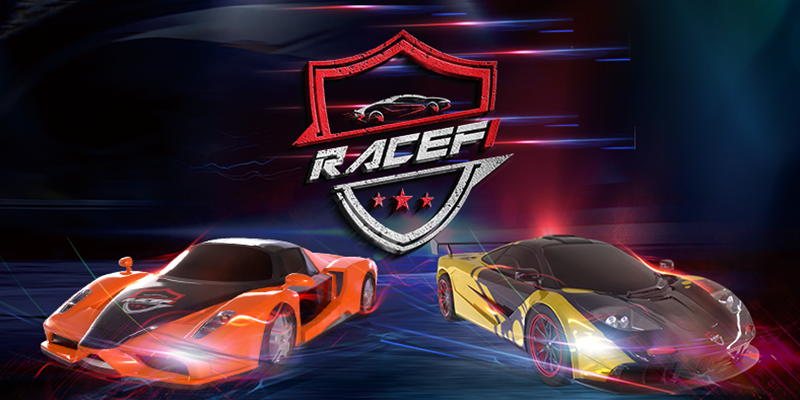
- NomadLand: Gamers will be able to construct farms, buy land, and engage in epic battles for non-fungible tokens on NomadLand. This blockchain-based NFT game, combining a strategic element with an action RPG, will let players earn tokens that can be exchanged for special equipment like armor, weapons, and superpowers. The game will be released in Q3/2024, specifically in July, August, or September 2024 (source: game-ace.com)
- Silks: The creator of this NFT game aims to reinvent the traditional thoroughbred racing sport by fusing Game-Fi, the metaverse, and horse racing. The core of the Game-Fi philosophy is that players will have the opportunity to own in-game assets within this game and exchange them for actual cash. The full game is expected to be released in Q3 2024
- Illuium: One of the most eagerly anticipated games in the NFT gaming sector is this open-world auto battler. The game’s first open beta was supposed to take place in 2021, but the makers acknowledged that it wasn’t ready. The game has been delayed to Q3 2024 to ensure a high-quality player experience. It is expected to release in July, August, or September 2024.
- RaceFi: As the Solana ecosystem’s first AI/ML integrated auto racer, RaceFi has so much potential. Notably, the play-to-earn paradigm, as well as PvP and PvE modes, are presupposed by the game’s fundamental ideas. Currently, RaceFi has launched the sale of the Founder’s Pass NFT package.
Impacts of NFT games in the gaming industry
Although NFT games could be complicated and have poor UX design, their present usage makes it difficult to ignore how they affect the ecosystem. Here are the top aspects that show how NFT game can affect the game industry.
Interoperability
You may utilize your NFT collectable with some or all games. Since the NFT is stored on a blockchain, its ownership and data are monitored, and it is impervious to tampering, it is simple to move it across games that use the same blockchain.
This would be a benefit of Quartz from Ubisoft. It would be intriguing for a publisher with several well-known gaming brands to be able to link them all together and their products as NFTs. Ubisoft clarified that it won’t profit from resales on Quartz in response to charges of a money-grab, and that this NFT platform is based on the low-carbon Tezos blockchain.
The players empowerment
Players are accustomed to purchasing in-game products through season passes and microtransactions. However, NFTs give players more control over the game by allowing them to sell objects and potentially profit from future resales. This is significant for the era of digital games for those gamers who grew up trading in their old games for new ones. For example, limited-time skins are currently available in games like Fortnite and FIFA, or players have the option of purchasing NFTs of new talents or XP in addition to things. Players may manage the selling and resale of goods with NFTs, too.
More fan benefits
The players you follow, the esports celebrities who grab headlines, and the programmers who make games possible are just as important as the games themselves. NFTs in games may serve as entryways to bring gamers closer to the people and teams who create the most popular games. By using NFTs in this manner, game producers are able to manage their volatility as holders increase their value over time.
Real and virtual worlds combination
NFTs are proven to be a novel method of connecting the physical and digital worlds. Both KokoSwap and The Bored Apes Yacht Club regularly hold events for its owners, and The Bored Apes Yacht Club will have a BAYC game released in 2022. So that users may attend a Spurs fan event or training camp that is invite-only thanks to FIFA NFT. It is also possible for users to purchase and wear the truly uncommon shirt.
The future of NFT games
Without a doubt, blending with traditional gaming, GameFi components, blockchain, XR technologies, and metaverses will be the future of NFT games. This strategy ensures that everyone gains the most from the release of blockchain-based products. The gaming industry’s future begins with synergy because its main goal is to increase value.
In the upcoming years, NFT game producers would be inspired to create content with even more vigor, which makes working in the GameFi sector increasingly lucrative.
The P2E model will also definitely alter the market and have an impact on other popular games, which may react by incorporating similar innovations into their main gameplay. Additionally, the emphasis will move to interoperability, which implies that an NFT collectable obtained through one game may be used in other comparable goods that use the same blockchain.
However, developing NFT games may also prove to be difficult. This is why the choice of an NFT game development company can directly affect whether a project survives beyond early hype and continues to grow after launch.
Frequently asked questions
NFTs provide true ownership of in-game assets, allowing players to trade, sell, or use them across different games, creating new economic opportunities.
Of course there are free NFT games that you can play and earn digital collectability, for example: The Sandbox, Axie Infinity, SweatCoin, League of Kingdoms, etc
Having fun and making money at the same time is the key benefit of NFT gaming over traditional gaming. Gamers who like it and see it as their biggest passion may now make money from it. Additionally, there is no requirement to turn into a professional gamer who competes in competitions for monetary rewards.
Investing in NFT games can be profitable, but it carries risks due to market volatility. It’s important to research the game and understand the potential for growth before investing.
Wrapping up
“What are NFTs game?” is no longer a vague question for any investors. And NFT gaming can still be one of the flourishing NFT trends in 2025 despite the market turbulence. Anyone may easily pitch in with their own ideas in the GameFi and the associated NFT games market, but reaching the height of their performance and popularity is still a difficult task.
Synodus always has everything prepared to develop a comprehensive NFT game that will increase the value of your game and widen its audience. Not to mention that we have been a supportive technical partner of Cyberium – an innovative E-Sport metaverse project (they have been loving our work together, we guess as they endorsed us 5-star review on Clutch)
If you are ambitious and looking for some joining hands to develop the most addictive NFT Games ever, contact us right. We know how to make your first-ever cryptocurrency-based projects the next big thing.
More related posts from our blockchain blog you shouldn’t skip:
- Real estate NFT marketplace: Everything you need to know
- 4+ NFT Marketplaces Without Gas Fee To Save You Money
- 6+ Fashion NFT Marketplaces: Which Are The Best For Fashion Enthusiasts?
How useful was this post?
Click on a star to rate it!
Average rating / 5. Vote count:
No votes so far! Be the first to rate this post.




